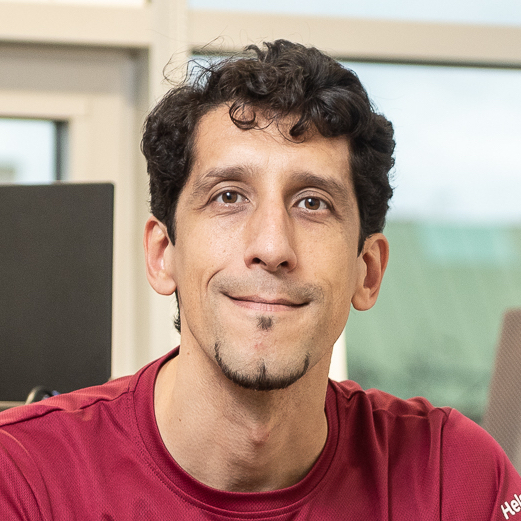
Luis Pablo Prieto Santos
| AREA | RESEARCH GROUP | INSTITUTE |
|---|---|---|
| Information and Communication Technologies | Group on Intelligent and Cooperative Systems / Education, Media, Informatics and Culture (GSIC/EMIC) |
After several years working in industry as a Telecommunications Engineer (2000-2008), I decided to start researching in a more academic way, in the GSIC/EMIC group at UVa. My doctoral thesis and much of my initial postdoctoral career (2009-2013) focused on computer-supported collaborative learning (CSCL) and how to help teachers manage this kind of complex learning activities in their classrooms.
During my Marie Curie European postdoctoral fellowship at EPFL (Switzerland) (2014-2016), I started using machine learning and artificial intelligence techniques to analyse educational data, especially for use in multimodal learning analytics (MMLA). For example, we used sensors such as eye positioners and accelerometers to give feedback to teachers on how they managed collaborative activities in their daily practice.
As a senior researcher at Tallinn University (Estonia) (2016-2022), I delved deeper into the field of learning analytics, supervising several theses aiming to use these techniques to assist various stakeholders in evidence-based educational practice. During this phase of my career, our team received the National Research Prize, awarded by the Estonian Academy of Sciences (2020).
Currently I am back again at UVa as a Ramón y Cajal researcher, applying all these techniques and technologies to the field of doctoral education, which suffers from significant dropout and mental health problems (in collaboration with researchers from disciplines such as psychology or education).
During my career, I have also led several national and European tasks and projects. I also popularise topics on doctoral productivity and supervision in my blog "A Happy PhD".
I study educational technologies and technology-enhanced learning, with an emphasis on the application of machine learning and other artificial intelligence techniques to education (also known as learning analytics). I am particularly interested in complex or unstructured learning situations, such as collaborative, creative, knowledge-generating and reflective activities. I have worked with teachers and students at various levels of education (from primary school to PhD), always trying to propose technologies designed with the people who will use them in mind, and the complex (often improvisational) sets of practices they use to learn and teach.
My vision is to use technology (whether sensors, or complex artificial intelligence algorithms) to gather evidence and better understand how people learn and teach. In that sense, it is not only important what we as researchers can learn, but also to offer these data and techniques to students and teachers themselves, for their own reflection and learning. I am particularly interested in how this vision might apply to doctoral education, which currently suffers from serious drop-out and mental health issues, for which there are as yet no scalable and personalised interventions (technological or otherwise) - as each student and doctoral process is, by definition, unique.

